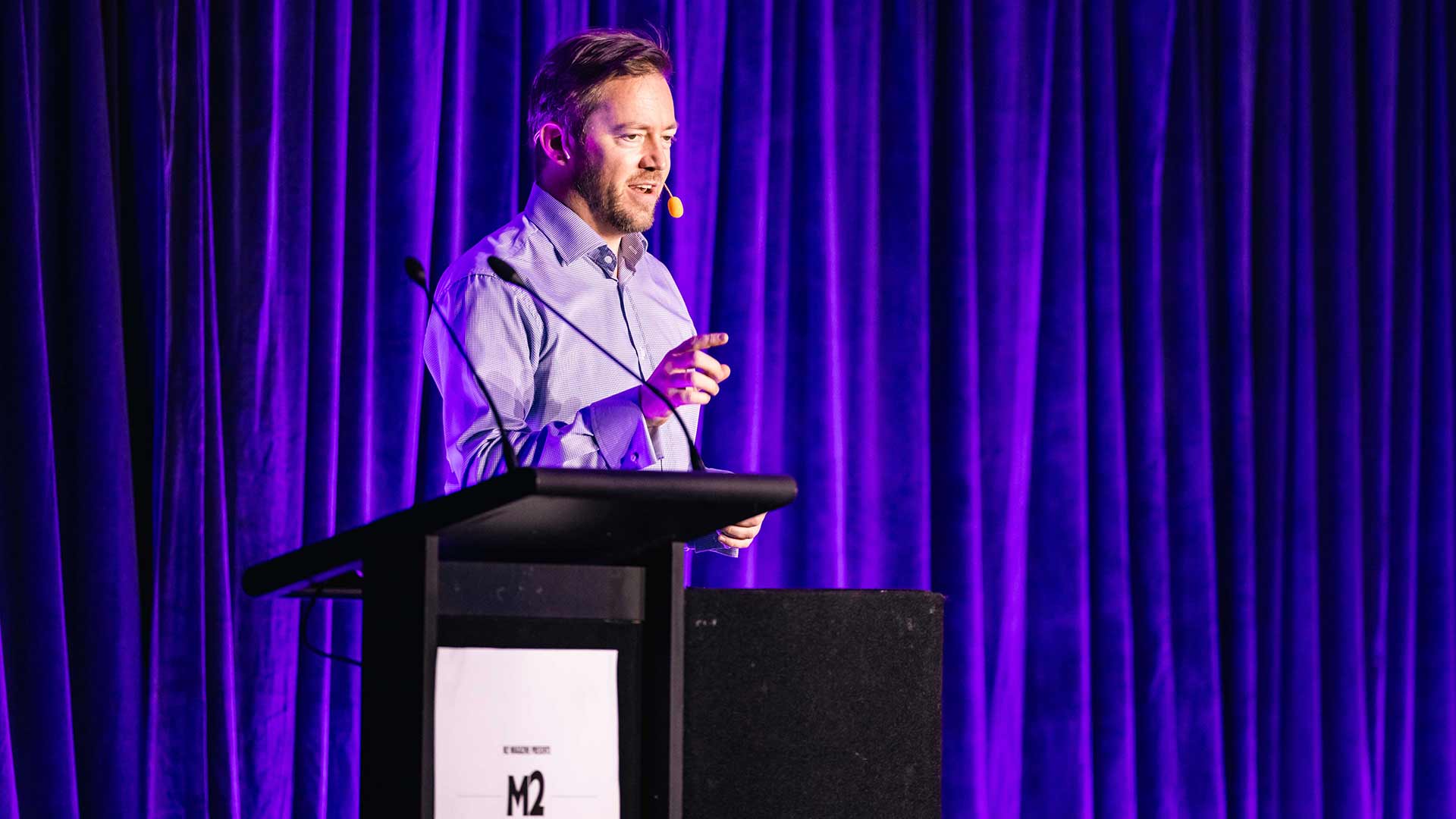The Future of Work
AI expert, Tim Warren, focused his keynote on the transformative power of artificial intelligence (AI) and its impact on the future of work. With over 25 years of experience in strategy, executive management, and technology, Warren’s insights addressed both the opportunities and challenges that AI presents.
Warren began with a light-hearted take on his own position within the AI revolution, noting that AI’s progression might soon surpass even the industry’s most seasoned advocates. “AI is not a far-fetched concept now, right? We know it’s here,” he asserted, contrasting the current acceptance of AI with the scepticism of a few years ago. He highlighted AI’s role in reshaping industries and the workforce, emphasising that this shift is more profound than previous technological disruptions. “This is the first time disruption has faced us with the white collars on our shirts,” Warren remarked, pointing to the unique challenges and opportunities that AI brings to professional sectors.
One of the most striking elements of Warren’s speech was his call for continuous learning and upskilling to thrive in an AI-led world. He stressed that new roles and opportunities will emerge as AI transforms various industries. “Some jobs are gonna develop but others frankly are gonna disappear,” he said. Warren’s vision of a future workforce involves a symbiotic relationship between humans and AI, where AI’s capabilities enhance human creativity and decision-making rather than replace them entirely.
Warren’s analysis extended to specific industries, demonstrating AI’s transformative potential across the board. He highlighted AI’s impact on sectors ranging from healthcare to marketing, and from advisory services to governance. For instance, in healthcare, AI has already shown promise in enhancing diagnostic accuracy and speeding up medical research. “You get the best results when you combine,” he said, referencing the synergy between AI and human expertise. He quoted a prominent figure from Harvard Applied Sciences, underscoring the consensus that AI will support, not replace, the critical human elements of healthcare.
In marketing, Warren suggested a more disruptive potential. “Most of their jobs all the way up to the senior roles are predominantly going to disappear,” he predicted, highlighting AI’s ability to create highly personalised and competitive marketing strategies. This shift, he argued, will necessitate a reevaluation of roles within the industry, pushing professionals to adapt and leverage AI tools to stay relevant.
Warren also addressed the governance sector, pointing out that AI’s integration into boardrooms is already underway. “If you’re not using it today, you’re way behind,” he warned. He discussed the potential of AI to enhance board processes, from note-taking and action tracking to conflict of interest detection. Warren’s message was clear: AI is a tool that, if used wisely, can significantly improve governance and decision-making at the highest levels of an organisation.
To the assembled business leaders, Warren offered a stark yet hopeful vision. “AI won’t replace leaders. AI enhanced leaders will replace those who are not,” he stated, encapsulating his belief in the power of AI to augment human capabilities. He urged the audience to embrace a mindset of continuous learning and adaptation, recognising that the future belongs to those who can master the symbiotic relationship between human ingenuity and AI’s computational power.


